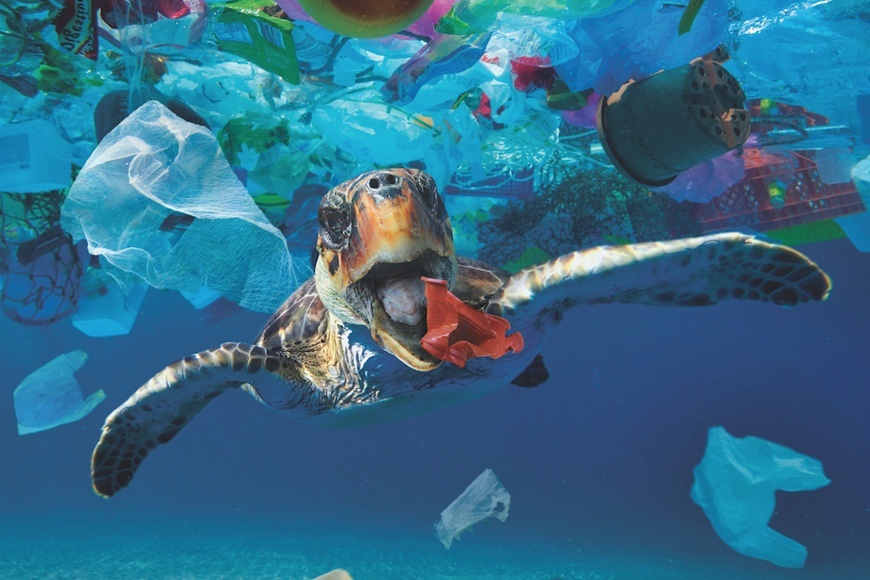
There are discoveries, revolutionary for their time, that turn out to be a complete disaster due to the way they are used. One such example is the nuclear fission chain reaction. So is plastic when used only once. Its decomposition in an organic environment takes about 400 years and still remains incomplete after that. 91% of plastic contamination found on beaches around the world is food packaging, as it turned out after a large-scale clean-up and study organised by Ocean Conservancy. As we all know, plastic is a strong, flexible and durable material, which makes it extremely convenient and widespread for use today. However, it turns out that the destructive effects of this use have increased enormously, mainly due to the inability of plastic to degrade, which means it remains in nature for hundreds of years after its disposal as waste
Expressed in numbers, this is an appalling picture – 51 trillion microscopic plastic particles weighing more than 269,000 tonnes are floating in the oceans.
91% OF DISPOSABLE PLASTICS ARE NOT RECYCLED
They go into landfills and then into the groundwater or directly into the ocean. 99% of climate change is due to pollution. Plastic waste directly kills 1 million seabirds in one year.
WE EAT PLASTIC
Did you know that ¼ of saltwater fish contains plastic? Microplastics are transmitted along the food chain through protein structures.
WE DRINK PLASTIC
Plastic decomposes into microplastics in a few hundred years and ends up in groundwater. 83% of your tap water contains plastic particles.
WE BREATH PLASTIC
Tonnes of plastic particles are released into the air from aviation fuels and heavy oil industries.
THIS WILL UNDOUBTEDLY HAVE A DESTRUCTIVE EFFECT ON HUMANITY TOO
For years, this destructive material has been recklessly used for packaging all kinds of products, but the increased focus on environmental protection has led to the development of various alternative solutions to replace plastic with something beneficial to nature and reduce the effects of plastic use. A good innovative example of this is replacing plastic wrapping foil with an organic one that is biodegradable and compostable. This new material is made from potato starch, which is completely harmless but just as strong as plastic, allowing you to easily replace plastic bags with those made from this starch. Compostable products can even serve as a nutrient and enrichment for the environment. Plastic products break down into small particles – microplastics – and remain forever in nature, while plant starches have nutritional properties and beneficial effects on the environment. Governments, industries, manufacturers and merchants must find a solution and we consumers must make a choice.
We at BeBio have a solution, so would you prefer biodegradable bags and packaging made from plants or their plastic alternatives? The choice is yours.
Contact us
Fill in the form below and one of our representatives will contact you
